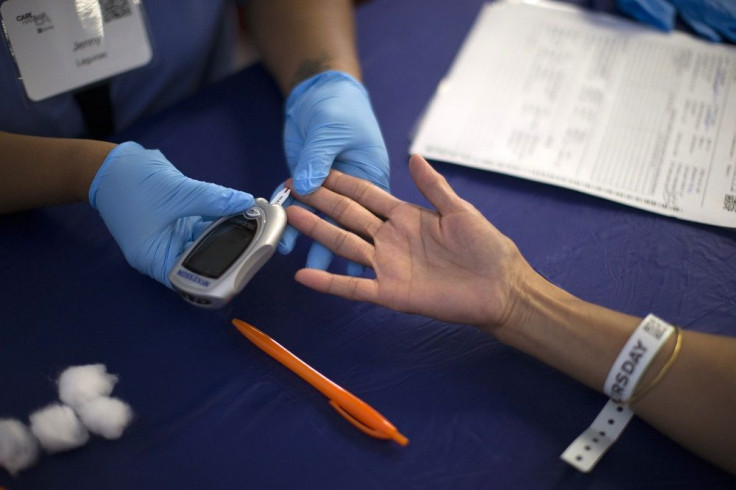Global diabetes cases rise fourfold to 422 million in 2014 from 108 million in 1980

In 34 years, diabetes cases around the world quadrupled from 108 million adults in 1980 to 422 million in 2014. The World Health Organisation (WHO) released the numbers on Thursday, a day ahead of World Health Day.
It is the first global report on the chronic ailment which came with a call on governments to ensure its people could make healthy choices and the nation’s health system could diagnose, treat and care for diabetics. The report did not distinguish how many have Type 1 and Type 2 diabetes, although it notes Type 2, linked to diet and lifestyle choices, is more common.
WHO says the four-fold rise in diabetes is a reflection of an increase in risk factors such as obesity or excessive weight. The organisation highlighted the strong link between diabetes and poor eating habits and lack of physical activity, which caused 1.5 million deaths in 2012, while another 2.2 million died the same year due to high blood sugar, reports Gizmodo.
One noticeable difference in the unprecedented rise in diabetes cases globally is that majority of the patients are now from poorer nations, reports The Washington Post. In the last 10 years, its prevalence went up faster in low- and middle-income countries than in high-income nations. Both now have a prevalence rate of 7 percent, but the baseline for high-income nations was 5 percent, while it was 3 percent for low- and middle-income countries.
Etienne Krug, director of WHO’s Department for Management of Noncommunicable Diseases, Disability, Violence and Injury Prevention, explains the fast rise of diabetes in low- and medium-income economies to rapid urbanisation. “People who used to work in the fields doing quite hard physical work, had access to vegetables and fruit very cheaply and did most of their transportation by walking or bicycle, are now living in cities where the type of work they do, the type of transportation modes they use and the type of food they eat is very different,” he notes.
Krug adds that poverty is also a factor because it is more difficult to access healthy foods in poorer nations. He says that “Diabetes is a silent disease, but it is on an unrelenting march that we need to stop.”






